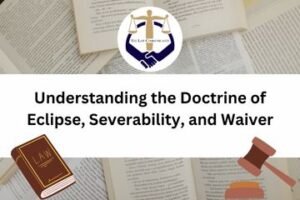Copyright: Protection and Remedies for Infringement
Copyright law provides legal protection for original works of authorship, including literary, artistic, and musical works. Copyright protection grants the author of a work exclusive rights to use, distribute, and sell their work for a limited period of time. The purpose of copyright law is to incentivize the creation and dissemination of creative works by granting authors exclusive rights to their works, which allows them to monetize their creations.
In order to be protected under copyright law, a work must be original and fixed in a tangible form of expression, such as a book, painting, or music recording. Once a work is fixed in a tangible form, the author automatically holds the exclusive rights to the work, without the need for registration.
Importance of the Copyright Act
- Encourages creativity and innovation: Copyright protection encourages artists, writers, musicians, and other creators to produce new and original works by providing them with exclusive rights over their creations.
- Promotes economic growth: Copyright protection can help promote economic growth by providing creators with a means to earn a living from their works, and by encouraging the development of new industries based on copyrighted material.
- Protects the integrity of creative works: Copyright protection helps to ensure that the original creators of works are credited and that their works are not altered or used in ways that are detrimental to their reputations or creative vision.
- Encourages cultural diversity: Copyright protection can encourage the creation and dissemination of works that reflect a diverse range of cultural perspectives and experiences, which can help to enrich our understanding of the world around us.
- Enhances education and research: Copyright protection can provide incentives for creators to produce educational and research materials, and can help to ensure that these materials are widely available and accessible to the public.
Copyright infringement occurs when someone else uses, reproduces, or distributes a copyrighted work without the author’s permission. Remedies for copyright infringement include injunctions to stop the infringing activity, monetary damages, and impounding or destruction of infringing copies of the work.
The Copyright Act of 1957 in India is the primary legislation governing copyright protection in India. Some of the relevant sections of the act include:
- Section 13: Originality of literary, dramatic, musical, and artistic works
- Section 14: Meaning of copyright
- Section 17: First owner of copyright
- Section 18: Assignment of copyright
- Section 22: Meaning of the term “copyright society”
- Section 31: Term of copyright in published literary, dramatic, musical and artistic works
- Section 51: Acts that do not constitute infringement
- Section 52: Certain acts not to be infringement of copyright
- Section 63: Offences relating to infringement of copyright
- Section 65: Presumption as to authorship in the case of published works
These sections provide detailed information on the various aspects of copyright protection, including ownership, assignment, infringement, and the role of copyright societies in managing copyright.
Copyright law has become increasingly important in the digital age, as it provides protection for works that can be easily copied and distributed online. The rise of the internet and digital technologies has made it easier than ever to infringe upon copyright-protected works, making it important for authors to understand and enforce their rights under copyright law.
Conclusion
Copyrights are a crucial aspect of protecting original works of authorship in various fields such as literature, art, and music. By providing legal protection to authors, creators, and innovators, copyrights promote the growth of knowledge and creativity, while also benefiting the economy by encouraging investment in new ideas and works. Understanding the principles of copyright law, including the scope of protection, the process of registration, and the remedies for infringement, is important for both creators and users of copyrighted works. Infringement of copyrighted works can result in significant legal consequences, including injunctions, damages, and account of profits. Therefore, it is essential for individuals and businesses to comply with copyright laws and to respect the intellectual property rights of others.
Keywords: Copyright, legal protection, original works, authorship, infringement, remedies, intellectual property, artistic works, literary works, musical works,



